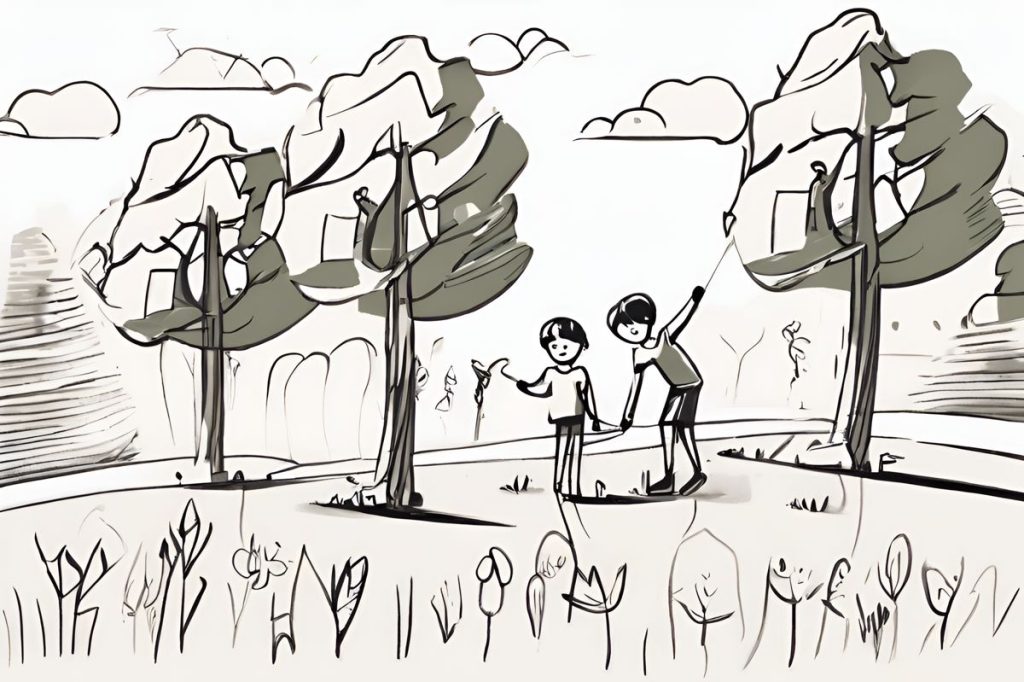Education Minister Athina Michaelidou stresses the importance of teaching children about the environment to secure a sustainable future. Through initiatives like tree planting, children are instilled with values of environmental stewardship and responsible citizenship, setting the stage for a greener tomorrow.
Why is children’s education crucial for a sustainable future?
Education Minister Athina Michaelidou emphasizes that educating children about the environment is key to a sustainable future. Teaching ecological awareness from a young age fosters responsible citizenship and environmental stewardship, creating a culture of collective action and responsibility towards nature. Engaging children in initiatives like tree planting instills lifelong values for protecting our planet.
Empowering the Next Generation
Education is the cornerstone of a sustainable future, and according to Education Minister Athina Michaelidou, it begins with the youngest among us. During ‘Environmental Action Day’ at the 21st primary school of Limassol, Michaelidou highlighted the significance of ingraining ecological awareness in children. The event, a collaboration between the school’s parents association, the school board, and the Mesa Geitonia municipality, shines a spotlight on the collective effort needed to foster an environment-focused mindset from an early age.
The day’s activities were not just symbolic gestures but a call to action. Children, accompanied by their parents and teachers, engaged in a tree planting initiative, setting the stage for a lifetime of environmental stewardship. Michaelidou applauded the organizers, recognizing that such events serve as a rallying point for the community to unite for a cause that affects us all—safeguarding nature for the yet-to-come.
Education for a Greener Tomorrow
The minister’s address underscored the mission of the education ministry’s sustainable environmental education policy. This blueprint for learning is not merely about protecting the environment; it’s an investment in shaping responsible future citizens. Through this policy, children are taught to value and defend their right to a clean and healthy environment. It’s a lesson in balancing rights with responsibilities, and it’s fundamental to democratic, modern, and inclusive educational practices.
This program goes beyond the confines of the classroom. It reaches into the heart of communities, where children lead by example, advocating for change and encouraging others to partake in the green movement. Michaelidou’s enthusiasm for the program is evident as she speaks of its broader cultural impact. By championing these initiatives, the minister hopes they will serve as a catalyst for heightened environmental consciousness across societal spheres.
A Collective Effort
The initiative at the 21st primary school is a prime example of what can be achieved when a community comes together. It’s a testament to the power of collective action and the role that education plays in mobilizing it. The message is clear: environmental care starts with education, and every small act contributes to a larger change. It’s about nurturing a connection between children and their surroundings, fostering a sense of responsibility that transcends the schoolyard.
The minister’s call to action is a reminder that every day is an opportunity to make a difference. With children at the helm of this transformative journey, supported by their teachers, parents, and wider community, the fight for a sustainable future is well underway. It’s a future that not only looks green but is lived, one day and one action at a time.
Why is children’s education crucial for a sustainable future?
Education Minister Athina Michaelidou emphasizes that educating children about the environment is key to a sustainable future. Teaching ecological awareness from a young age fosters responsible citizenship and environmental stewardship, creating a culture of collective action and responsibility towards nature. Engaging children in initiatives like tree planting instills lifelong values for protecting our planet.
How does the education ministry’s sustainable environmental education policy impact children’s learning?
The sustainable environmental education policy of the education ministry is designed to instill in children the value of a clean and healthy environment. It goes beyond traditional learning by emphasizing the importance of responsible citizenship and balancing rights with responsibilities. This policy not only educates children within the classroom but also encourages them to take action in their communities, leading by example and advocating for change.
What was the significance of ‘Environmental Action Day’ at the 21st primary school of Limassol?
‘Environmental Action Day’ at the 21st primary school of Limassol was a collaborative effort involving the school’s parents association, the school board, and the Mesa Geitonia municipality, showcasing the importance of community involvement in environmental education. The event highlighted the collective effort needed to instill ecological awareness in children from a young age. Activities like tree planting served as a call to action, encouraging children to become environmental stewards and fostering a culture of environmental responsibility.
How can communities support the education ministry’s initiatives for a greener tomorrow?
Communities can support the education ministry’s initiatives by actively participating in events like tree planting initiatives, promoting environmental education in schools and at home, and advocating for sustainable practices. By coming together as a community, individuals can amplify the impact of these initiatives and create a culture of environmental consciousness that extends beyond the classroom. The collective effort of parents, teachers, local authorities, and students is essential in creating a greener future for generations to come.

